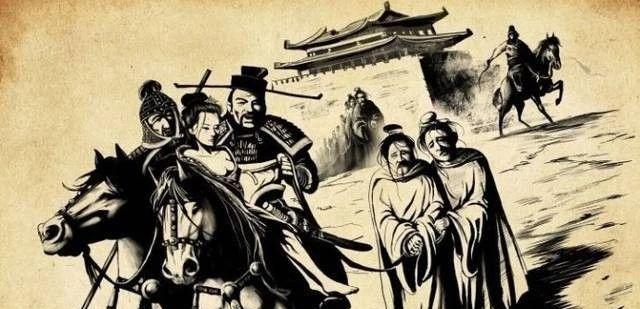
After Jin Bing abducted Emperor Huizong of Song and Emperor Qinzong of Song, King Zhao of Kang took the throne as emperor at Shangqiu in Nanjing, and then retreated to Jiangnan, that is, the Southern Song Dynasty.
At the beginning of the Southern Song Dynasty, the call to resist the Jin State to recover the Central Plains was particularly fierce.
Zong Ze even once recaptured Kaifeng and asked Zhao Zhuo to return it.
Under such circumstances, the slogan of "welcoming back the Second Saint" became the words that Zhao Zhuo and the Northern Expeditionary Forces were talking about day by day.
In fact, the Southern Song Dynasty did consider the action of raiding the Jin Dynasty to reclaim the Second Saint.
And it was a secret plan involving a third country, which was the Goryeo Dynasty.
As we all know, at that time, the capital of the Jin Dynasty, Shangjing, was located in today's Harbin Acheng, Heilongjiang.
Kim bordered the Goryeo Dynasty, which ruled most of the Korean Peninsula.
If you take the sea route to break through the territory of Goryeo, you will inevitably be able to kill the Jin soldiers by surprise.
Since the Transformation of Wang Anshi during the Reign of Emperor Shenzong of Song, the Song Dynasty has changed its previous sluggish posture and actively carried out diplomatic activities with surrounding countries.
Goryeo was favored by the emperors of the Northern Song Dynasty, and even the Northern Song Dynasty repeatedly sent imperial doctors to serve the Goryeo royal family.
The treatment of Goryeo envoys in the Northern Song Dynasty was once comparable to that of liao envoys in the song dynasty as a brotherly state.
The long-term friendship made Zhao And others believe that as long as they married Goryeo, they could attack jinguo by sea.
In 1128 AD, in the second year of the Southern Song Dynasty, the chancellor Yang Yingcheng said that Goryeo to Jurchen, "the road is very path", "please make the three Han, tie the chicken forest in order to welcome the second saint." ”
Therefore, Emperor Gaozong of Song, who was overjoyed, ordered Yang Yingcheng to carry the State Book to Goryeo with the high title of "False Punishment Department Shangshu":
"But your country is the greatest in Haidong, and the world is loyal." Since the Envoy, the Dynasty has treated your country with grace and grace, and has not begun to decline slightly. Compared with the difficulties of the times, the country is troubled, but the Di people used deception, so they persuaded the Second Saint to go on an expedition, up and down the worries, Mo Ning place... If the Second Emperor is welcomed by the way of your country, it will not fail in the righteousness of two hundred years of loyalty, but also repay the grace of the holy family. ”
It can be seen that Emperor Gaozong of Song had high hopes for this mission.
But things didn't go as expected.
The King of Goryeo politely refused the Song Dynasty's request:
"If I hear that an envoy has entered the country on a false road, he will be suspicious and suspicious, and if this is not the case, he will send an envoy to the DPRK in the name of applying for employment, and he will send an envoy to the DPRK in a false way, then why will I refuse?"
Goryeo's reason is not unreasonable, if it is lent to the Southern Song Dynasty, once discovered by the Jin Dynasty, Goryeo is naturally in danger.
Moreover, the Southern Song Dynasty could attack Jin from Goryeo Province, so why couldn't the Jin Dynasty attack the Song by sea from Goryeo?
This is not a good thing for the Southern Song Dynasty.
Yang Yingcheng saw that the Goryeo monarchs were prevaricating, so he angrily refused to accept goryeo's reply and gifts, and returned directly to China.
Although Goryeo then sent a rebbe attendant to the Southern Song Dynasty, he explained to Emperor Gojong that he could not borrow moral reasons, and claimed that his heart of "Muhua" would never change.
Since then, however, the relationship between the Southern Song Dynasty and Goryeo has been overshadowed.
After 1164, the two countries completely broke off diplomatic relations.